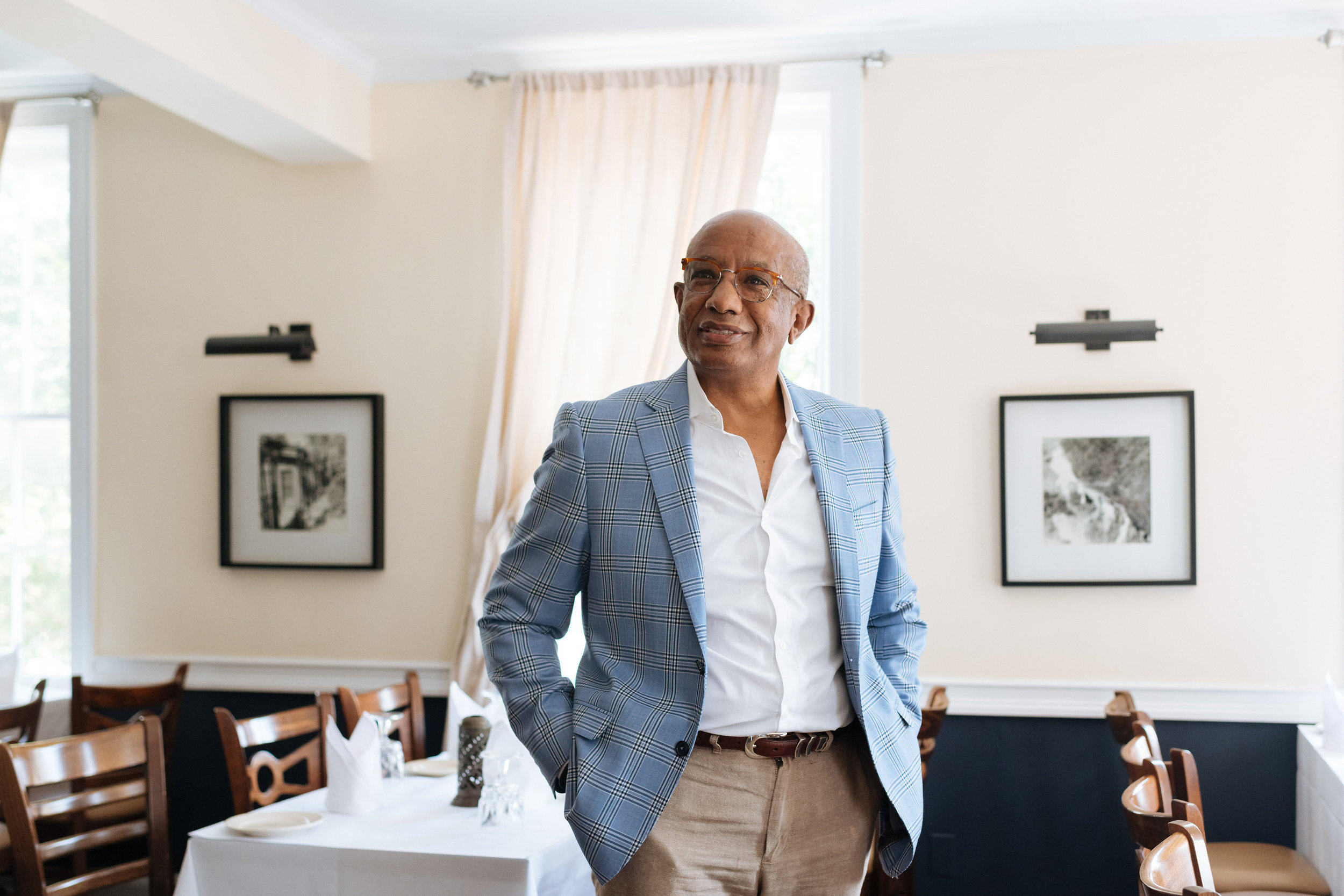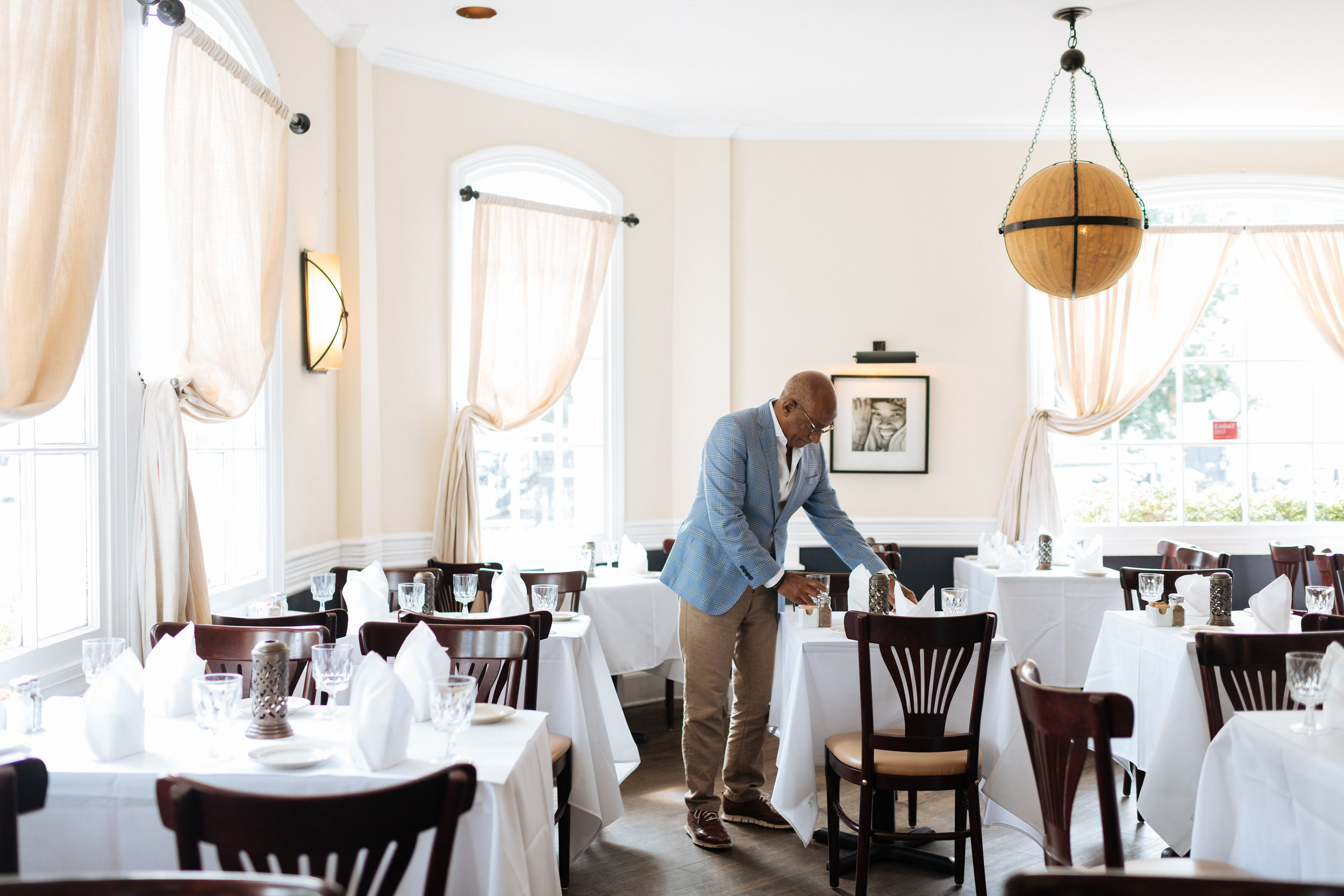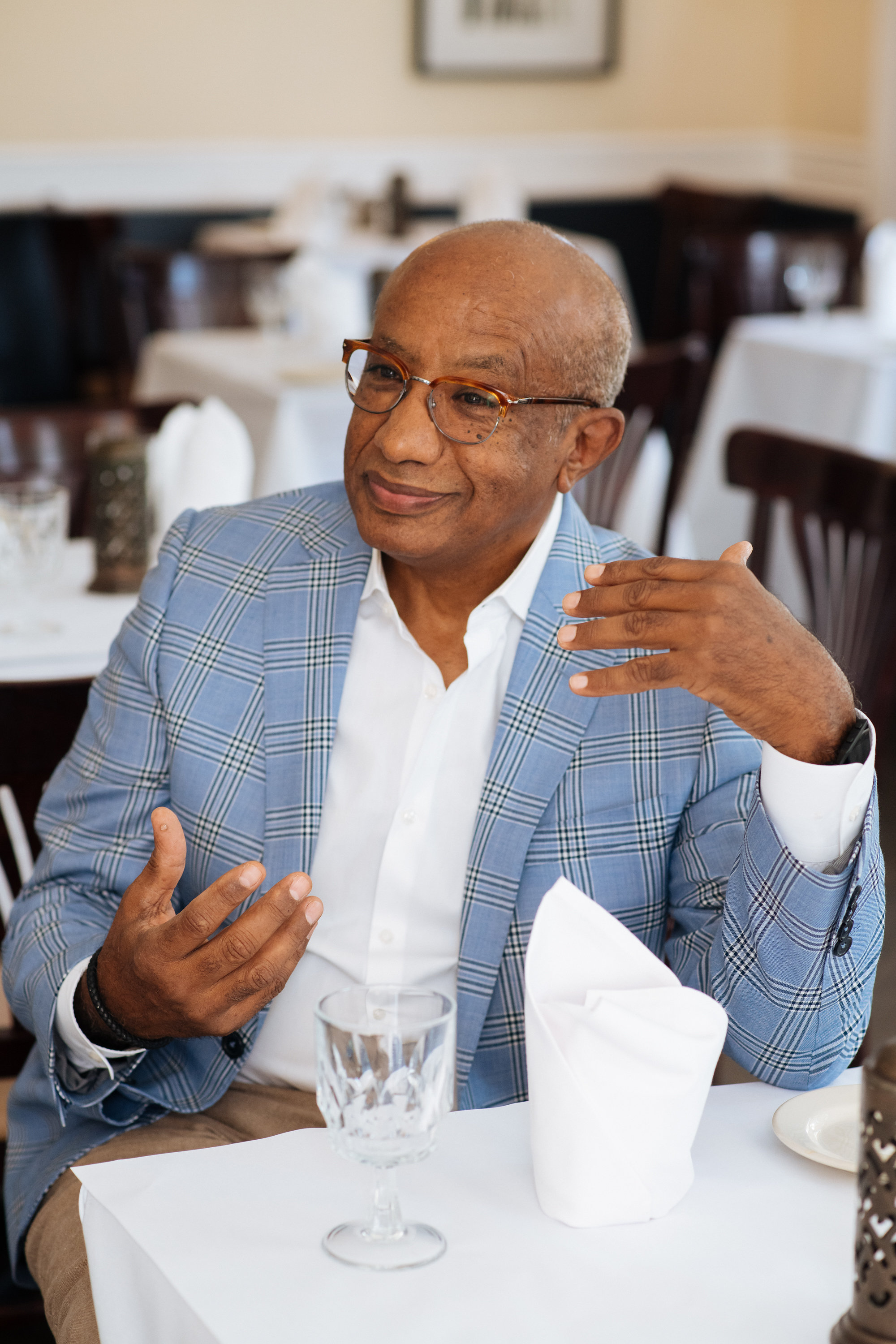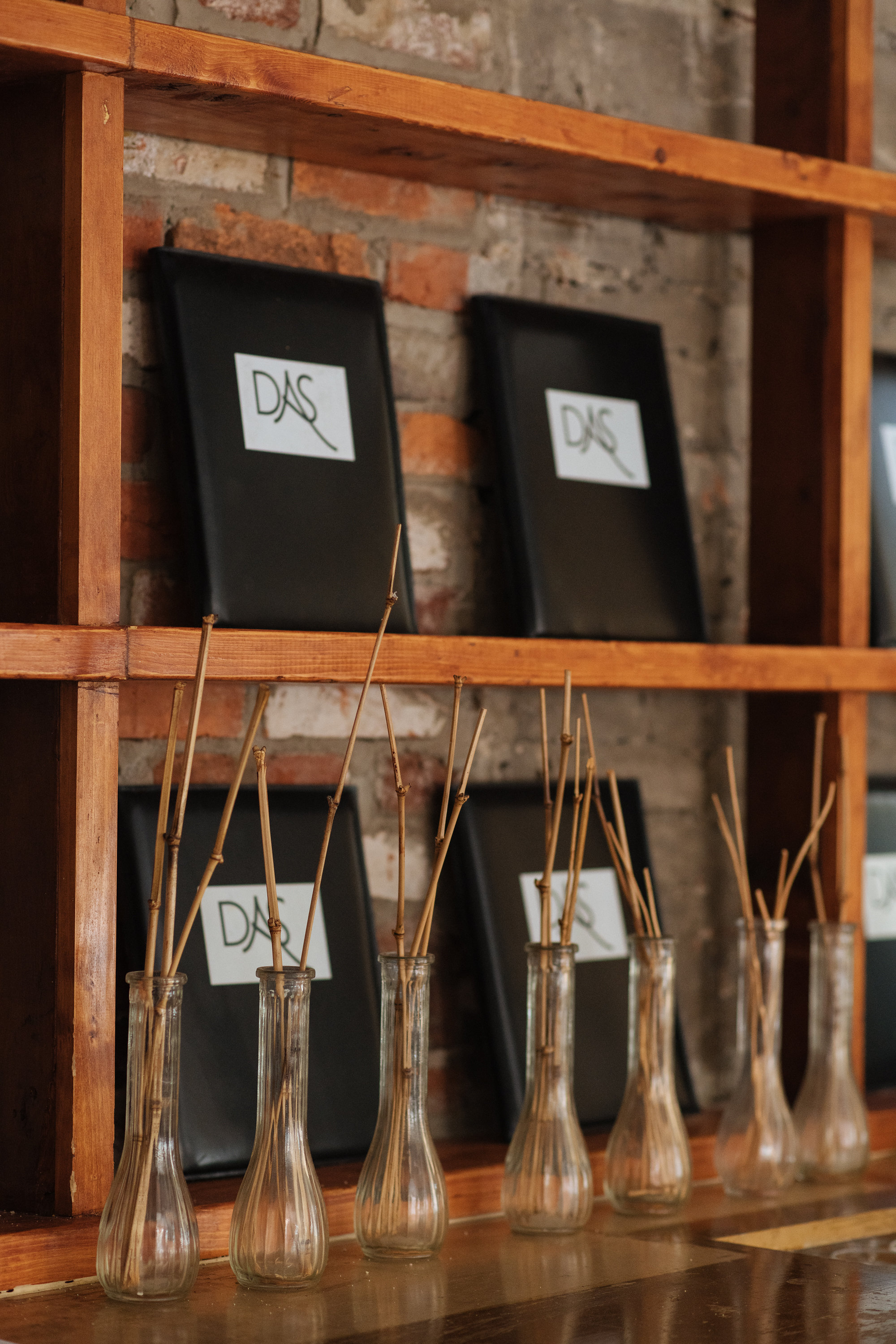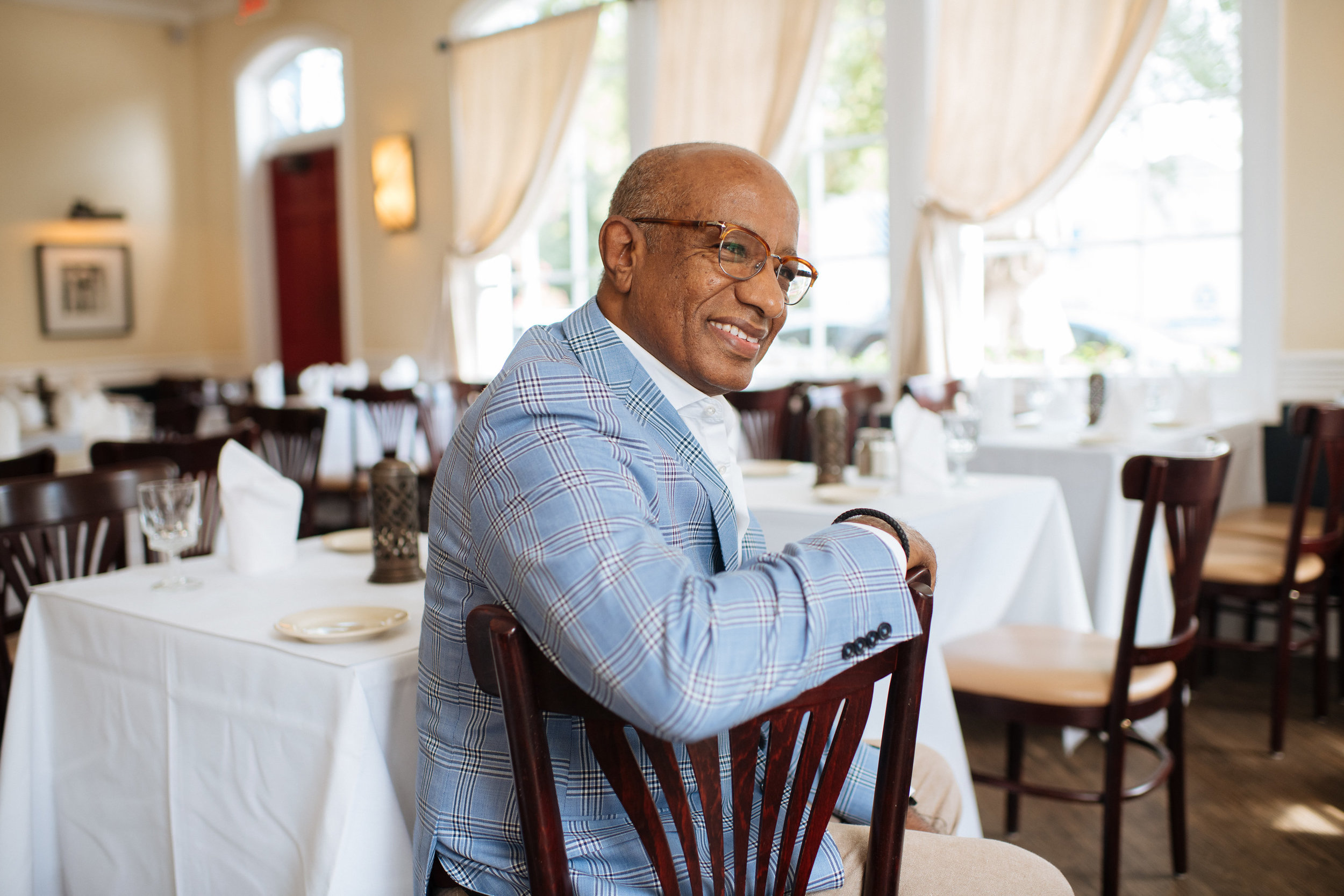‘I Can’t Be Any Happier Of Where I Am Right Now’
When you enter Sileshi Alifom’s restaurant, you enter his home.
‘In an Ethiopian house, food is eaten by hand and guests might be fed straight from the host’s fingers. This is known as Gursha. Tightly wrapping any number of sauces into the injera bread by hand is acquired early in life,’ says Sileshi, the owner of DAS Ethiopian Cuisine. ‘Just to show hospitality and to ensure that you are actually eating ok! Our version is me going around to every table each night and speaking to every person. If they’re exerting all that energy back home to make sure you’re happy, I have to do a little bit of that here as well.’
Sileshi was born in the Ethiopian capital city, Addis Ababa—Amharic for ‘new flower.’ He moved to the U.S. in the early 70s to finish high school and attend college, with every intention of returning to Ethiopia. Everything changed in 1974 when a revolution erupted back home. The military regime deposed the emperor and ignited a civil war that would leave nearly 1.5 million dead.
‘I didn’t have brothers or sisters, just me here. Things were out of control and I didn’t know what to do, so I focused all my energy on just trying to survive and work here. I worked as a dishwasher, and mopped the floors at night. Strictly survival.’
By the 80s, Marriott Hotels recruited Sileshi, who quickly excelled in their food and beverage division. He moved from New York and spent the next decade traveling around the country, with positions in Marina Del Rey, Santa Clara, Tucson, Scottsdale and Hartford, Connecticut. When his wife gave birth in DC, he transferred to the Marriott on 22nd Street to be with his family.
Sileshi spent 13 years in senior level management before becoming a hotel consultant. He’d never managed a restaurant, but was interested in bringing his brand of Ethiopian cuisine to DC.
‘Our culture is one where people show affection and appreciation by inviting people into their homes. Everyone gets together in a happy mode when there is food. And the reverse. When families are sitting in mourning or some other tragedy happens, it’s always that kind of gathering.’
At the time, Zed’s Ethiopian Restaurant had commanded the corner of 28th and M Street for over two decades. Sileshi knew he wanted that specific location if he ever opened his own restaurant.
‘My wife and I ate there one night, and a few weeks later the owner called up to see if there would be an interest in the space. I don’t even think I let her finish that sentence. The timing was perfect.’
In 2011, DAS opened to the public. The focus on traditional cuisine has remained, paired with elevated service. White tablecloths adorn the dining room, international jazz music plays from the speakers, and black-and-white Ethiopian scenes hang on the walls.
‘I wanted what I was instilled to do at Marriott—great service, great quality of product, great environment, and take great care of your people so they take great care of your customers. That is my basic principle.’
Although the food has not changed much, the presentation has.
‘Ethiopian food is very traditionally about sharing, but even that part of it, we wanted to do something different. All of our bread is cut into precise circles each morning, and put in the middle of the table. You eat with your eyes first.’
Sileshi experimented with a few alternative dishes early on, but says Ethiopian fusion is particularly difficult to do. Instead, he sticks to refining the basics.
On trips home, spices are his mission. Two or three suitcases full, to be exact—cheaper and fresher than any he’d find in the U.S. Unsurprisingly, Sileshi also spends a good deal of time eating.
‘Food always is the middle person or thing in anything that we do as Ethiopians. It sort of brings conflict at ease because everyone is focused on having that meal and having a civilized conversation. I have never experienced where food is being consumed and people are having a fight. To me food is diplomacy, it is to be shared. It shows us happy times, less happy times—everything revolves around food. In that respect, one of the common denominators for a family unit is the food. It is the greatest show for us.’
Sileshi says Ethiopian coffee service plays an equally important role—seen as a therapeutic time to socialize and engage in a culture without many outlets to do so.
‘People talk after that first cup; their heart is out. We don’t have a lot of therapists helping release tension or with whom to engage in conversation of personal nature. The coffee gathering is one way. It’s almost a space where they convey thoughts, good or bad, that have happened to them. An open theater. Everyone sits and everyone is talking. Those two things go hand-in-hand, the coffee ceremony and the food.’
Whether its Georgetowner’s or international travelers in Sileshi’s dining room, he aims to provide them with a similar conduit for conversation. Often, he’s part of it.
‘If I was home, inviting people to my house, and had the food and beverage out there, what would I do? Similarly, I ask how everyone is doing. Sometimes I make a joke, because they have a tendency to clean the plate completely. Between 6:30 and 9 pm, I am on the floor. My question is very simple—‘Is everything OK?’ My job is really to make sure everyone who eats my food and sits in my environment is happy.’
Sileshi couldn’t be more so.
‘Now I think I can’t be any happier of where I am right now.’
